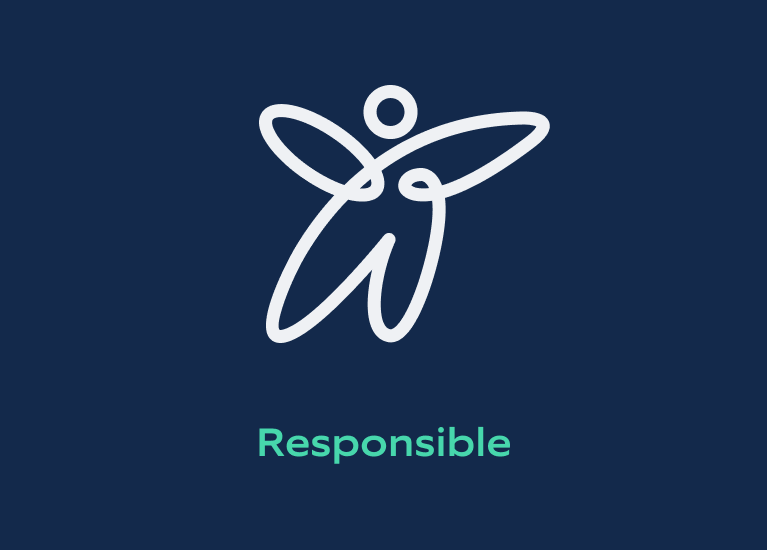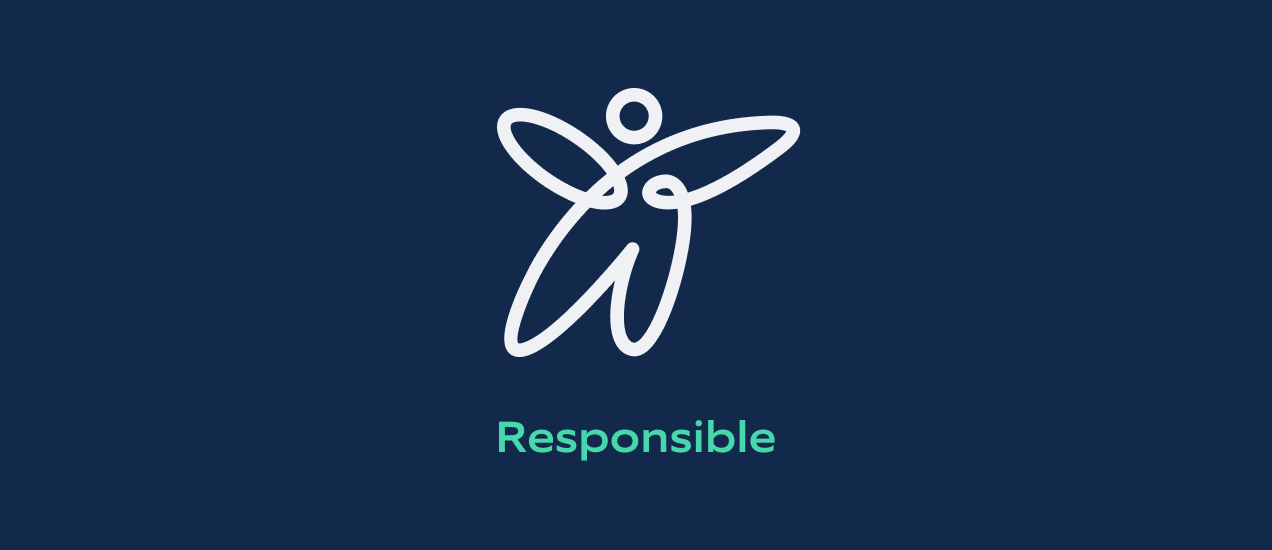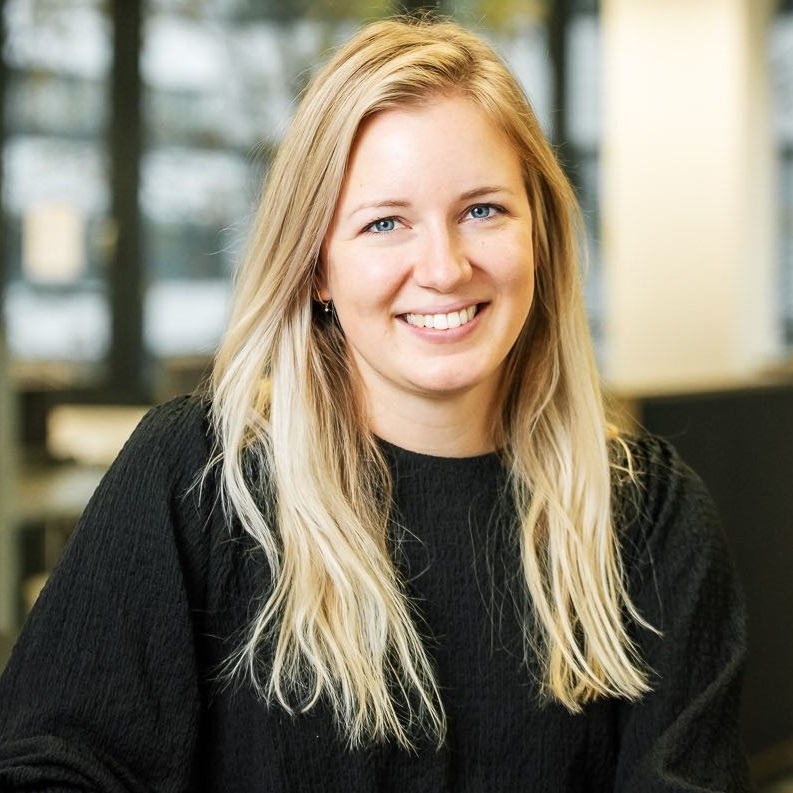CARING – being empathetic, respectful, and non-judgmental - is a core value here at Nagarro. At the same time, it’s an acronym for six other core values -Client-centric, Agile, Responsible, Intelligent, Non-hierarchical, and Global - that are part of our org DNA and reflect our unique culture. I had the pleasure of interviewing some of my colleagues from all over the world to understand their perspectives about these values and thought of creating a series of blog posts around that. Here’s the third one from the CARING series: Responsible.
My colleague Lucian Suhov, one of our Principal Engineers based in Romania, was the perfect fit to talk about this value. Precise and determined, Lucian claims that ‘impossible is not acceptable’.
He joined Nagarro in 2018, and since then, rather than working within the confines of an assigned role, he tends to take on any kind of task as per project requirements as he feels responsible for the project as a whole. Many people may see this as a weakness, but Lucian grows with each challenge, and by doing so, he has been able to gather a lot of experience from a variety of projects. We had a long chat on his take on self-responsibility and several other aspects.
[Sabrina Floh]: Lucian, first of all, why did you join Nagarro?
[Lucian Suhov] I already had an experience with Nagarro’s recruiting process due to an opportunity that didn’t materialize at that time. But the following year we reconnected, and our discussions led to an offer for me to join a project in Abu Dhabi, United Arab Emirates.
At first, I was a bit reluctant because at that time I had a one-year-old baby. But at the same time, it looked like a great opportunity because I’d never worked abroad, and my wife would still be on maternity leave for another year. So, after a bit of negotiation, we both decided to embark on this challenge.
Was there a specific reason behind you choosing this opportunity?
In fact, there were two reasons. First of all, the project itself seemed to be a challenge, and I have never been one to pass up a good challenge. Secondly, I learned that Nagarro’s generous expat policy made special allowances for employees who work abroad for at least six months. This meant that Nagarro would cover the expense of relocating my family and provide financial assistance for our children’s education. Both of these factors made the big decision an easier one for my wife and me.
Nagarro has seven core values. Why do you call ‘Responsible’ your favorite?
The term Responsible resonates the most with me. This is probably because I tend to involve myself in all aspects of a project, and I love guiding my team to achieve their highest potential.
How does this value help when you are working in teams?
I always try to make our team feel empowered. Of course, I guide team members as and when required, but I also try to avoid micro-managing the team. This gives people the freedom to organize their work independently. And they can always ask me any questions related to project management, administration, development, or quality. I believe that approach helps my team to produce the best results.
And how do clients benefit from this value?
One important aspect is the ability to maintain a balance between the client’s needs and what our team can deliver within a specific time period. I try to cultivate a relationship based on trust and honesty between the client and the team. As a result, this stronger relationship empowers everyone to take ownership of their responsibilities to meet demands or expectations.
Do the customers show appreciation?
They absolutely do! I know this for sure, because we consistently receive great feedback. Our dedication to each project, an excellent delivery record, and of course, strong communication skills have been mentioned multiple times in the feedback we receive. That not only includes communication within Nagarro, but also between the client and our teams.
How do our customers benefit from our responsible approach?
Our customers receive top quality deliverables as per their request, but only after thorough testing. Whenever we spot a bug in an application we are building, we try to remove it in the very same sprint. We try to avoid leaving the bug in the backlog because that would be a waste of time.
How do you work in a responsible way at Nagarro?
One example is the way we interact with colleagues. My team consists of co-workers from both Romania and India. While working with an international team brings a lot of benefits, working in different time-zones can be challenging. Making compromises such as setting up meetings while taking the team members’ local working hours into account, is another way to show responsibility.
Another example is the way we plan and execute projects. We’re always trying to calculate efforts precisely, so we’re able to deliver on-point.
A third and a very important point is our responsibility towards the environment. One way to help is by reducing the use of paper. We’re committed to reducing the amount of paper that we use and even try to go paperless whenever possible. For instance, I’ve started writing all my lists and notes on my laptop. Personally, I consider our responsibility towards the environment a big one. Not only does paper-reduction benefit the environment but reducing paper and printer supplies saves the company money as well!
In what other ways does the office in Romania pay attention to the environment?
All of us here are encouraged to recycle paper, plastic, and glass. Nagarro enables us to do so by providing different waste bins in the cafeteria. Not long ago, we had waste bins for every single workstation. These were removed to reduce the plastic bags required to empty them.
In addition to the plastic bags, the office in Romania also stopped ordering bottled water, which used to be delivered once a week. Instead, we now have a water dispenser with refillable canisters. You can choose whether you want cold, warm, or even sparkling water!
Would you describe yourself as ‘self-responsible’?
I would, now. However, there was a time when I used to work way too much. I knew working at this pace could not last forever, so I tried to improve my work-life balance. Thanks to my team, I was able to reduce my workload, which made my performance more sustainable in the long run.
What would your advice be to people having the same struggles, such as having too many responsibilities at work?
Firstly, they need to acknowledge this for themselves. Recognizing the problem can be the hardest step. That was also true for me. Once you are able to do that, there are two ways you can deal with it. Be mindful of your workload, and if you are presented with too many tasks, clearly communicate your concerns and proactively ask for additional support.
How does being responsible fit within the current work environment, where so many people are working remotely?
Self-responsibility is a must when working from home. You can easily lose your sense of time and spend too many hours on your laptop without taking breaks. And while WFH gives you a lot of flexibility, it is very easy to get distracted by things not related to work. That’s especially true when you’re not assigned to a specific project, and you’re attending online training classes instead.
It is extremely important to stay focused when working from home. I realized that when I have clear goals in mind, work is more enjoyable, and I find it much easier to be productive. With focus and motivation, I have no time to waste, and there’s always a goal to pursue.
Sounds like a very responsible attitude. Where did you get that from?
This is something I learned as a child. My parents certainly put their mark on me. I also had an elementary school teacher who was very insistent that I learn math. This taught me both discipline and patience.
And how did your parents put a mark on you?
There were many situations when I was a child. The one I will never forget was the time I took my bicycle for a ride without telling my parents or anyone else. I can’t recall the exact distance, but it was a long ride in one direction. While riding, I didn’t realize that I wouldn’t be back home on time. Meanwhile, my parents were really scared that something might have happened to me. From this situation, I learned to always think of others and not only of myself.
Coming to the last question, who comes to your mind immediately when you hear the word Responsible?
Family. Not just in the sense of a biological family, but also my team at work. We spend eight hours a day, five days a week together. That’s a lot of time!
This wraps up another conversation around our CARING values. Check out this cool video where other Nagarrians reflect on this core value:
You can view the earlier blogs from our CARING series here: C for Client-centric and A for Agile. The next blog in this CARING series will be on ‘I for Intelligent’. Keep checking our blog space!






